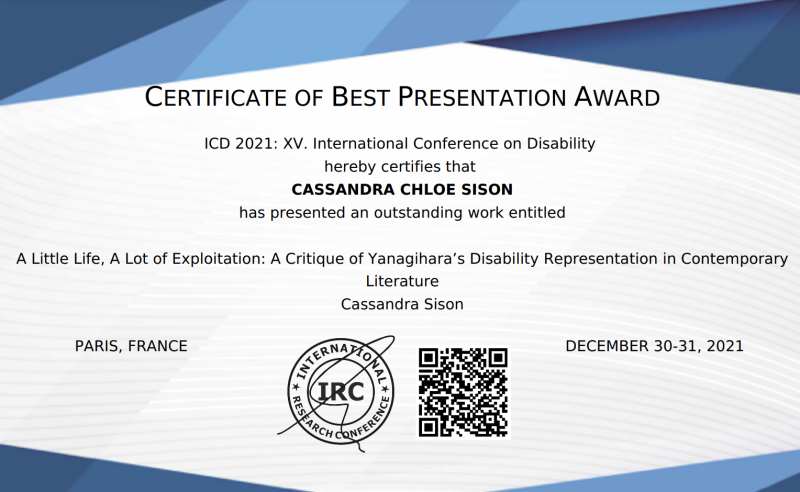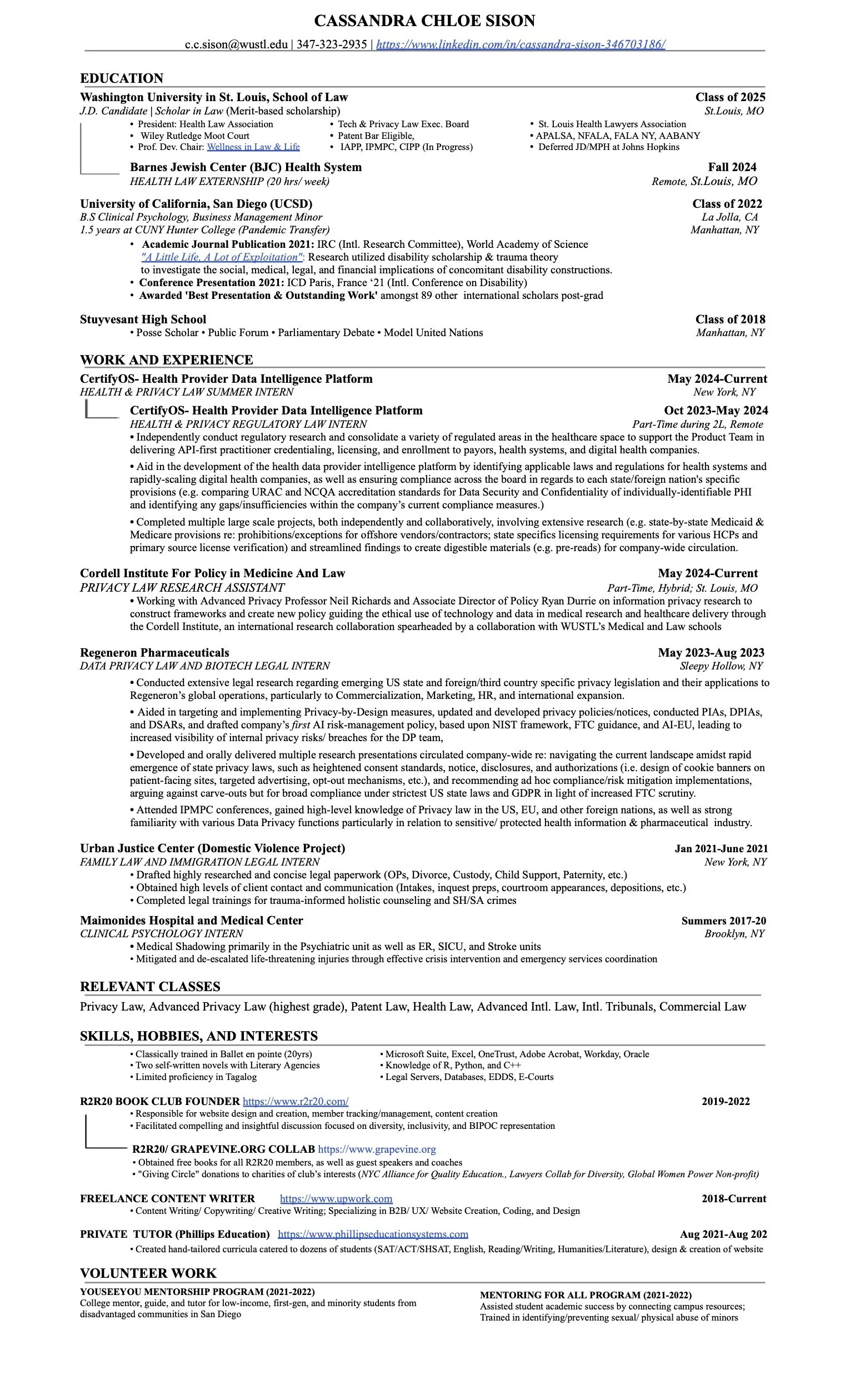A Little Life, A Lot of Exploitation:
A Critique of Yanagihara’s Representation of Disability in Contemporary Literature
BY CASSANDRA SISON
Abstract: This paper utilizes disability scholarship, trauma theory, and contemporary literature studies to investigate the employment and implications of concomitant disability representation in Hanya Yanagihara’s critically acclaimed novel, A Little Life, shortlisted for the Man Booker Prize in 2017. It argues that the author’s frequent use of what disabilities scholar David Mitchell coins “narrative prosthesis,” along with trauma porn and stereotyping, suggests that there is a level of disability in which one is so “broken” that the only recourse is suicide. The author’s intent, as she states in her 2015 Electric Lit interview, was to “create a character who never gets better...that there is a level of trauma from which a person simply can’t recover” (Kavanagh). However, the novel's primary focus on concomitantly disabled protagonist Jude St. Francis’ deeply traumatic life, and subsequent suicide, employs a histrionic narrative of tragedy that propagates harmful stigmas of disabled persons. Ultimately, A Little Life marginalizes, perpetuates, and even revives detrimental disability constructions that continue to deeply Other the disabled community.

